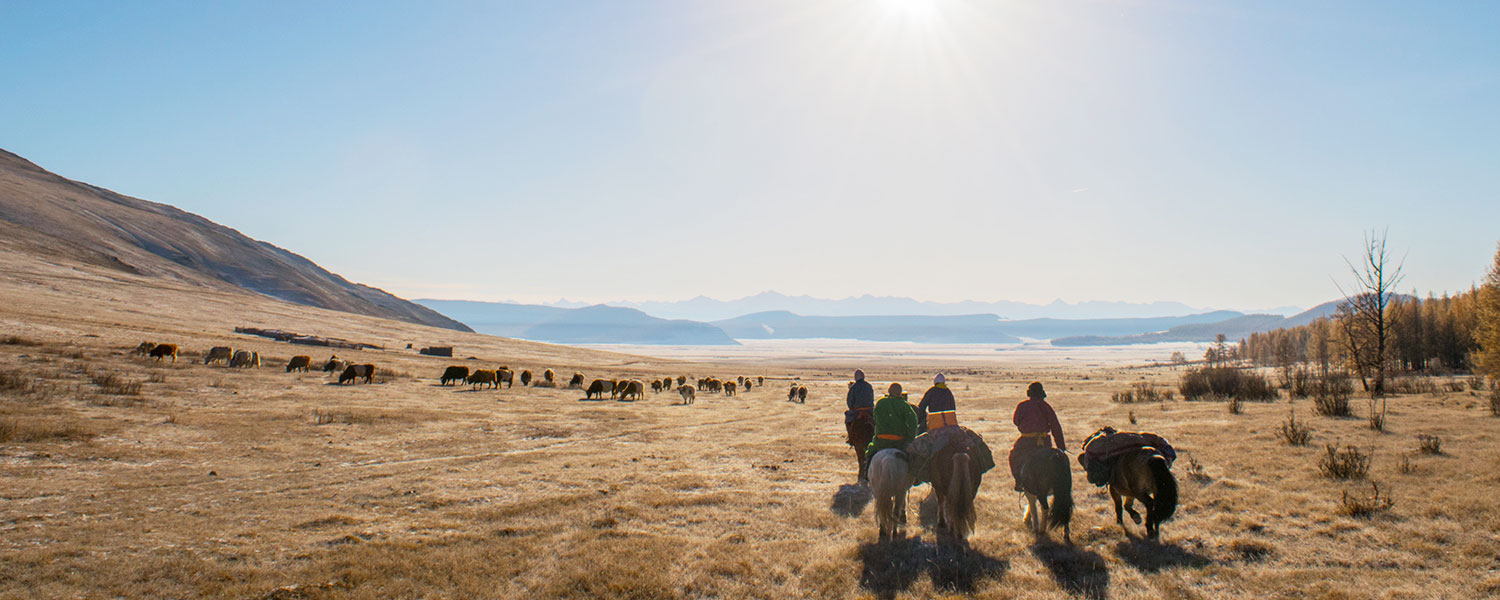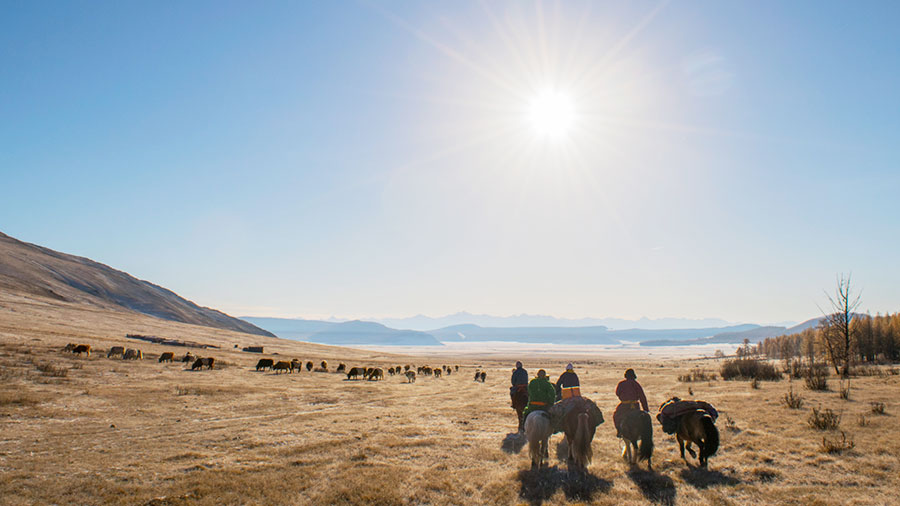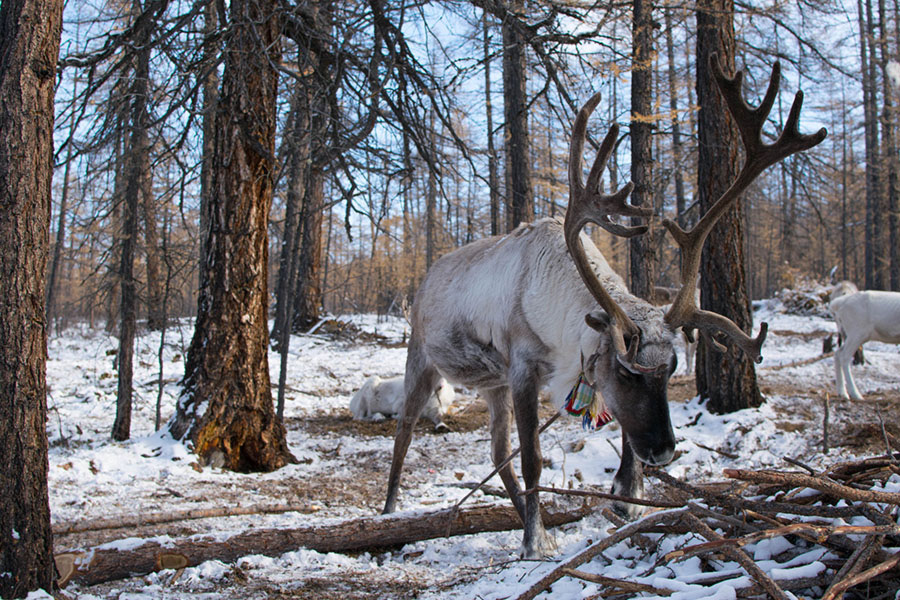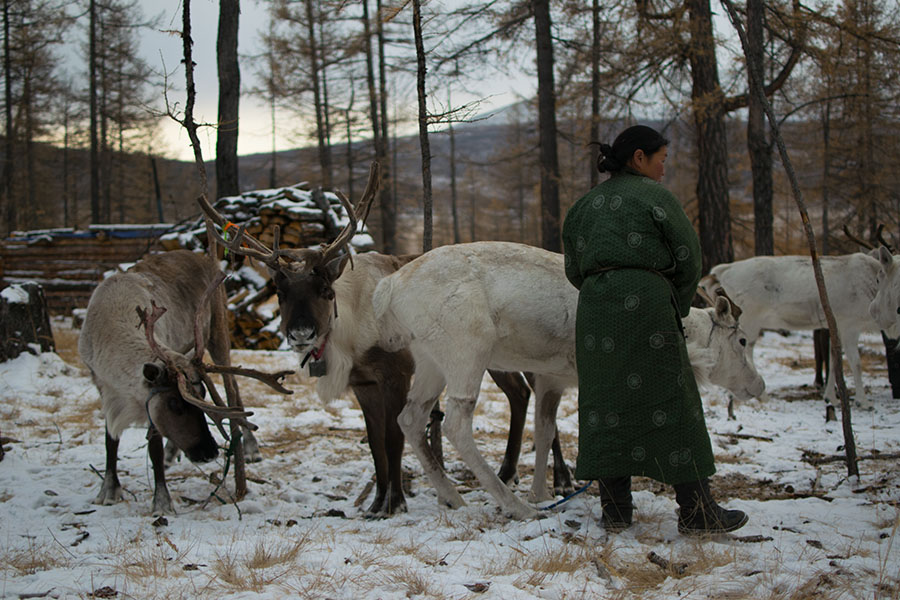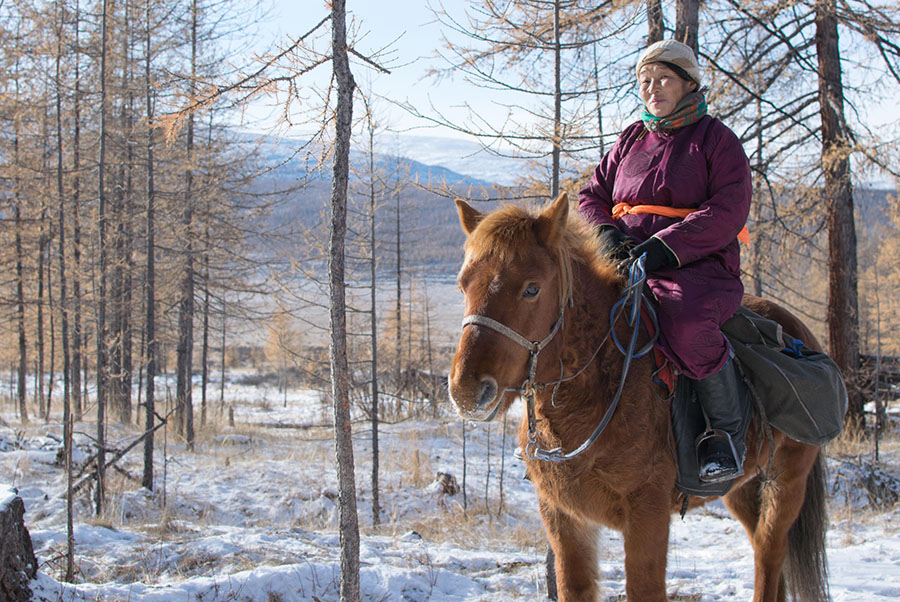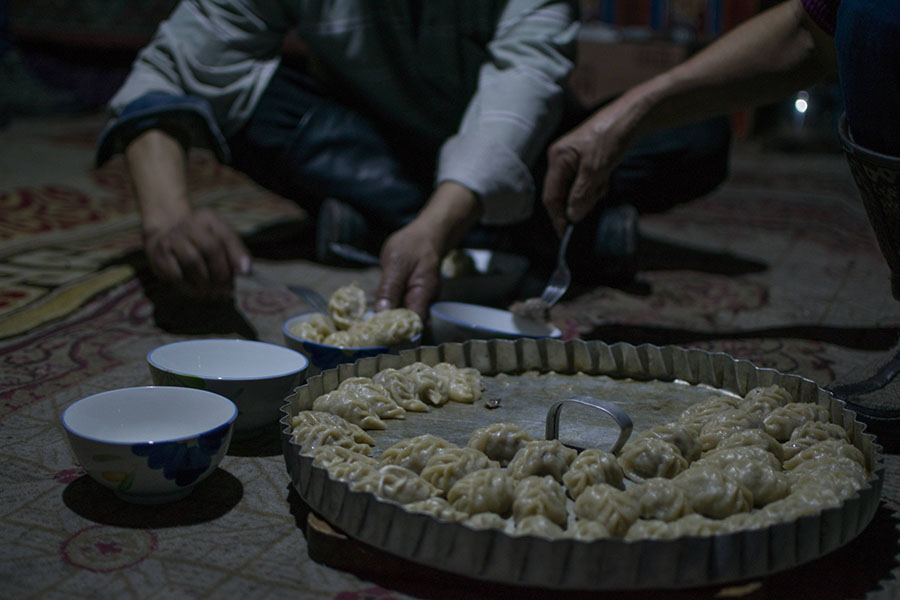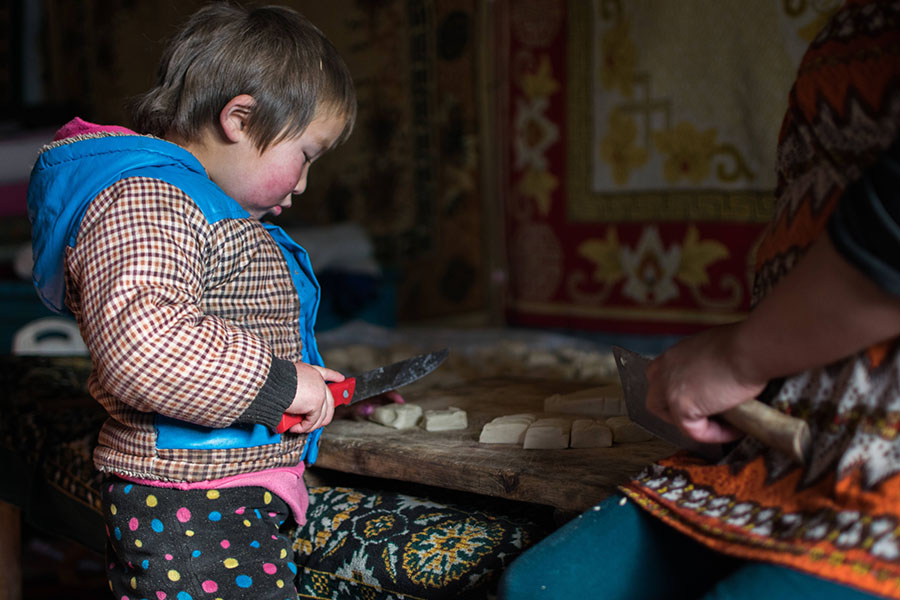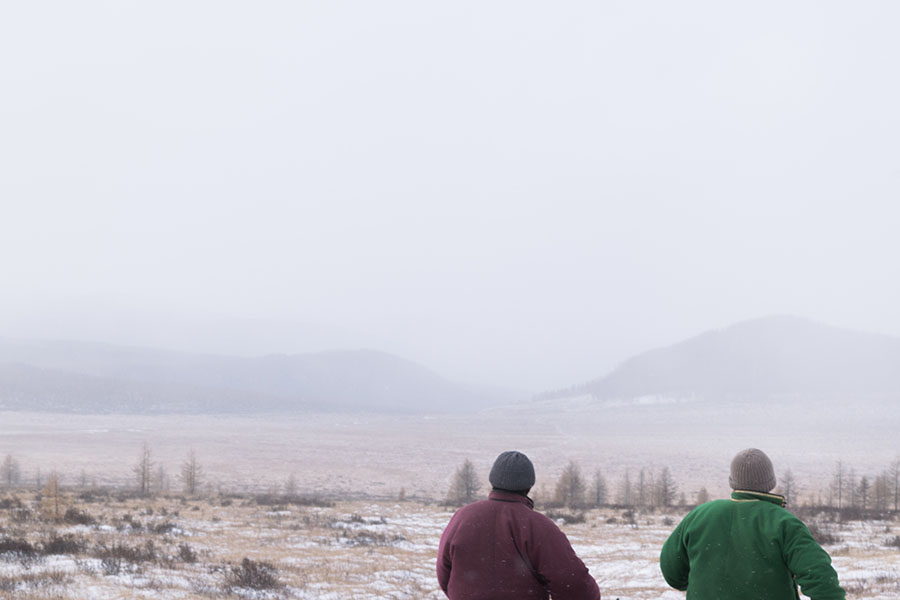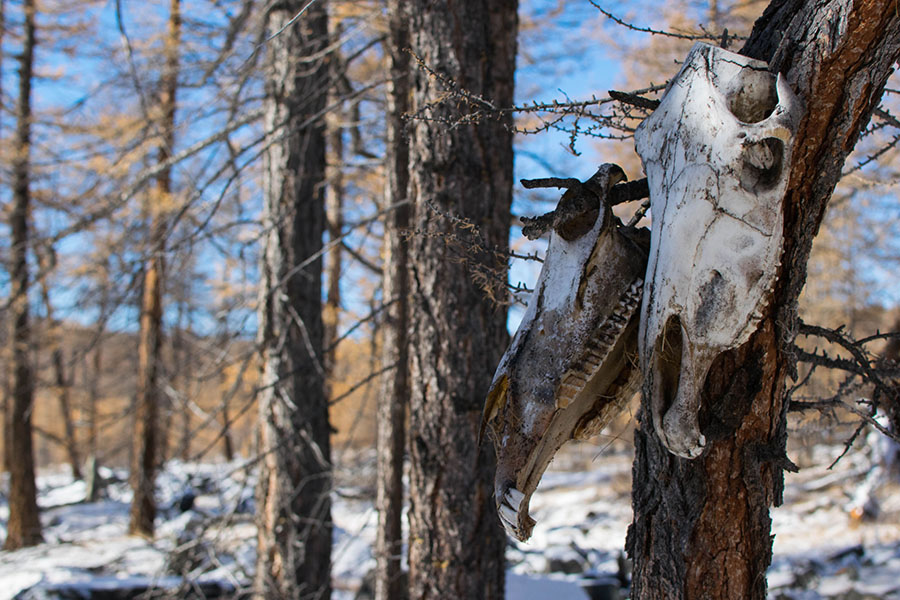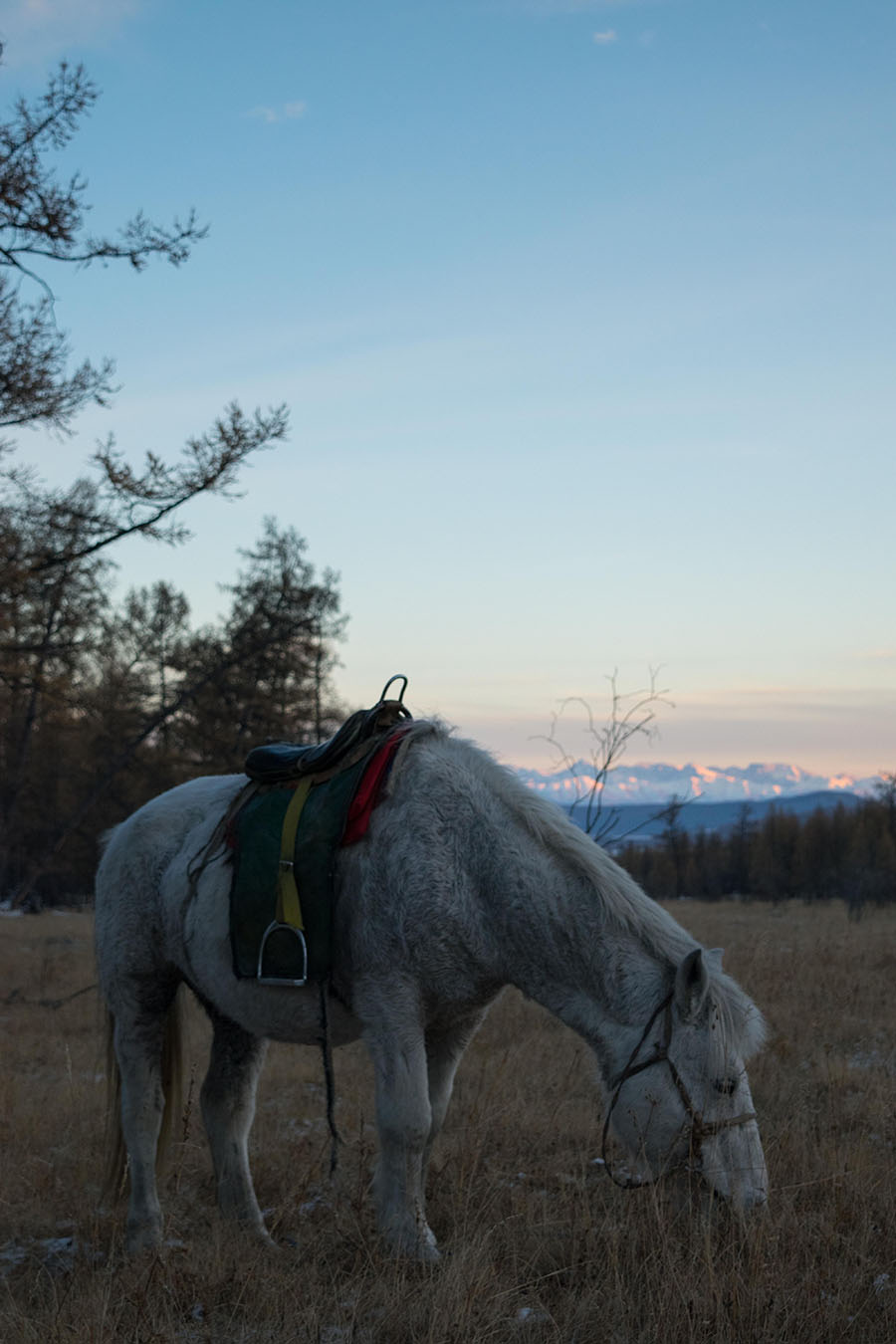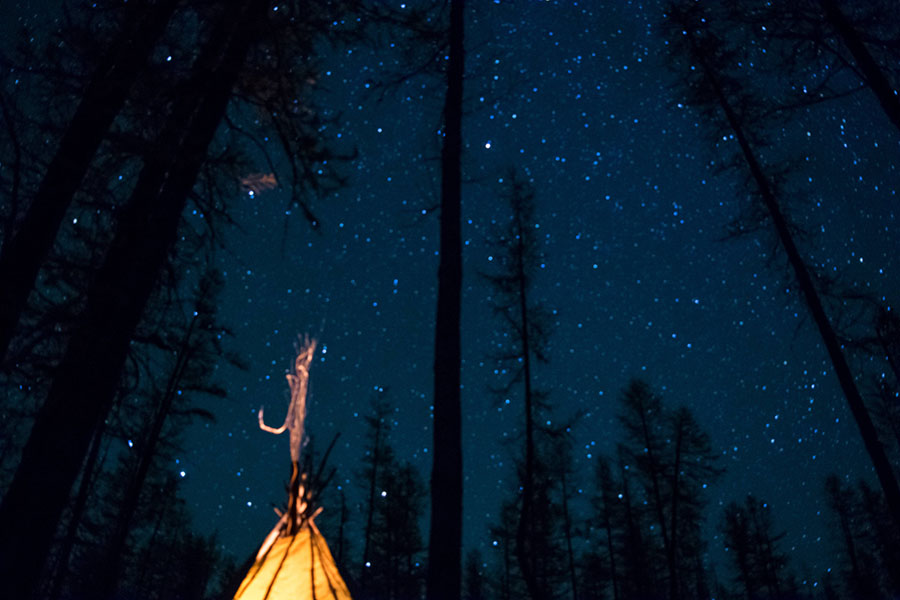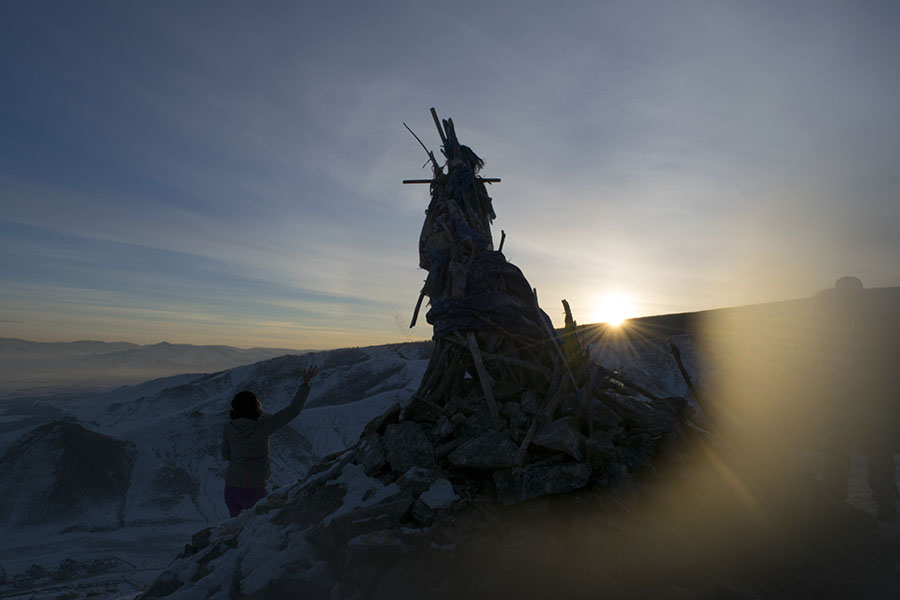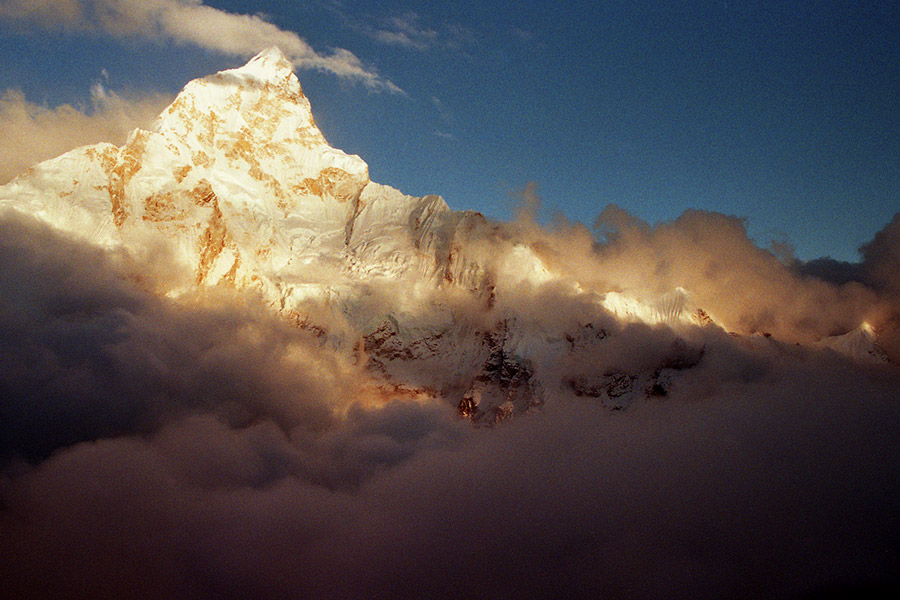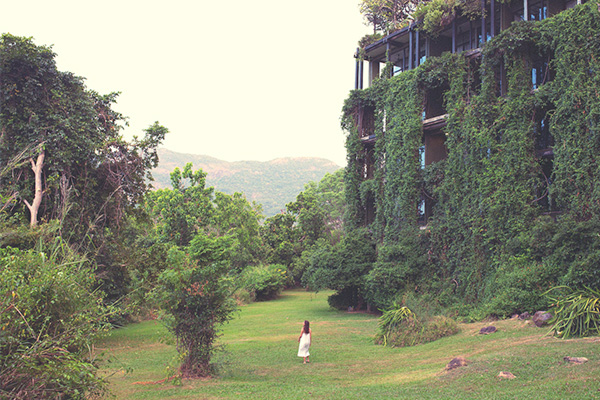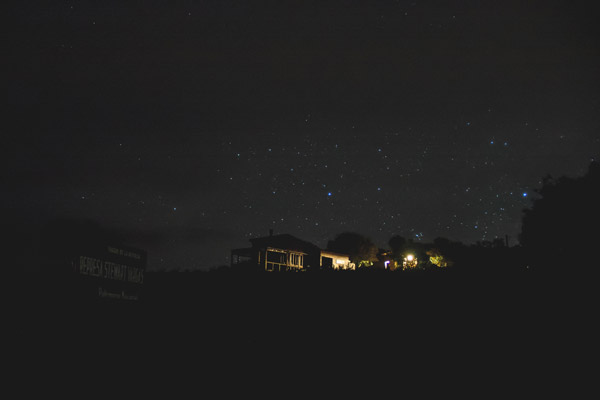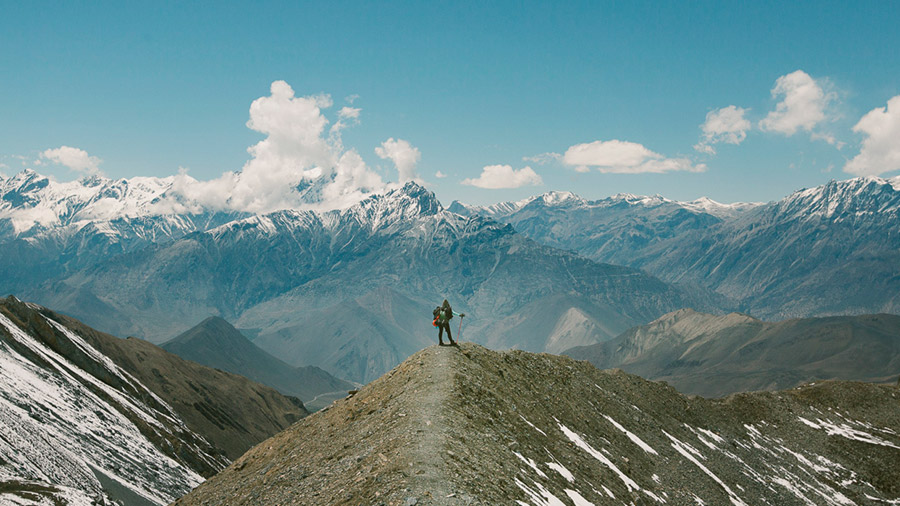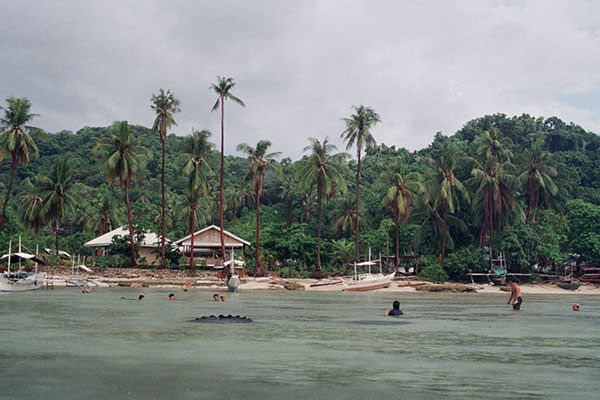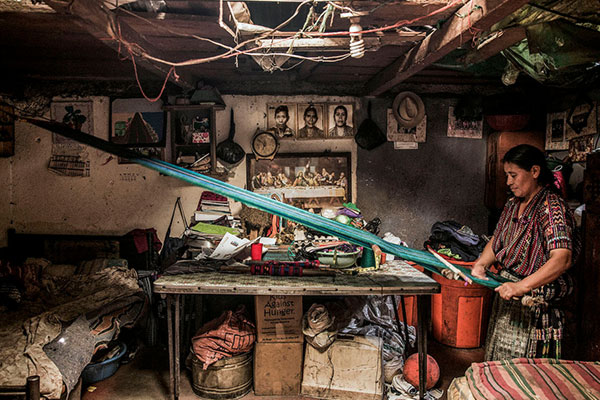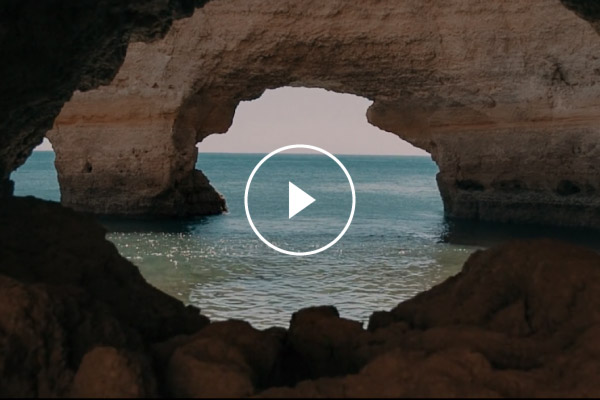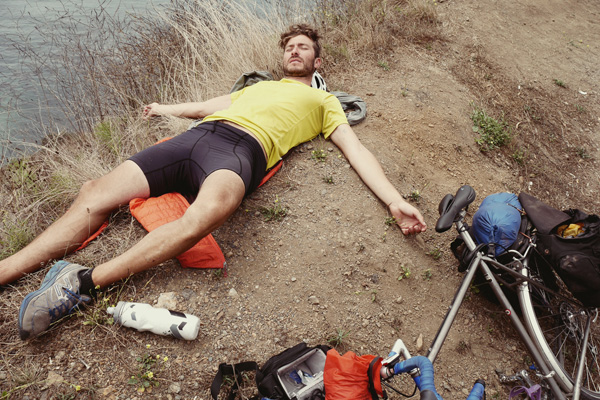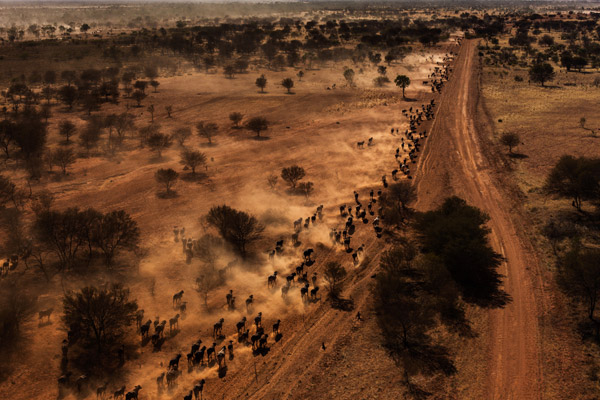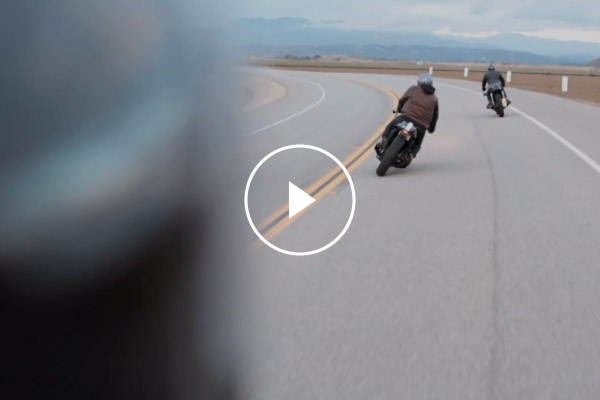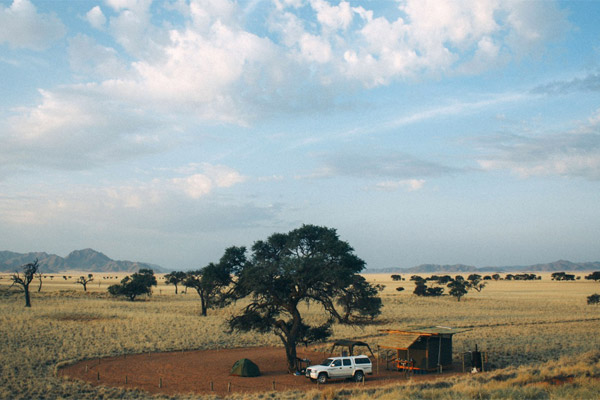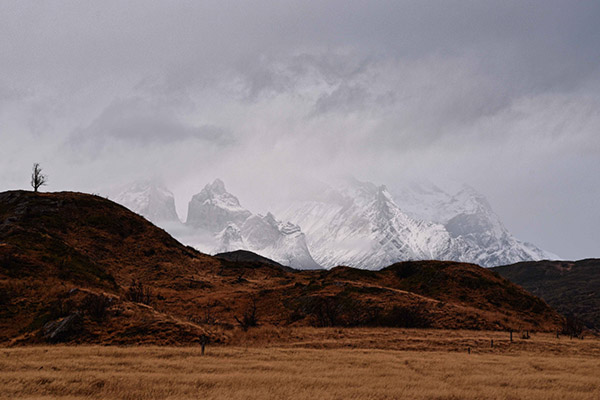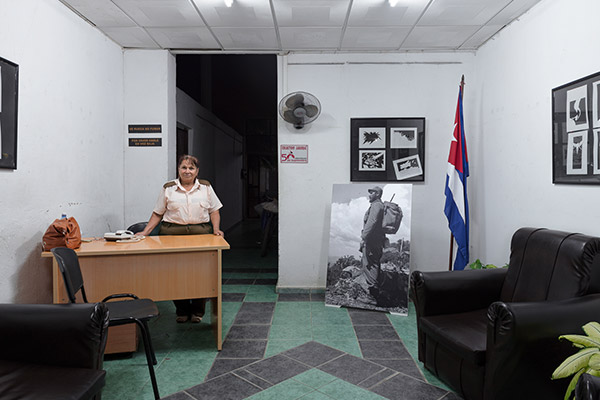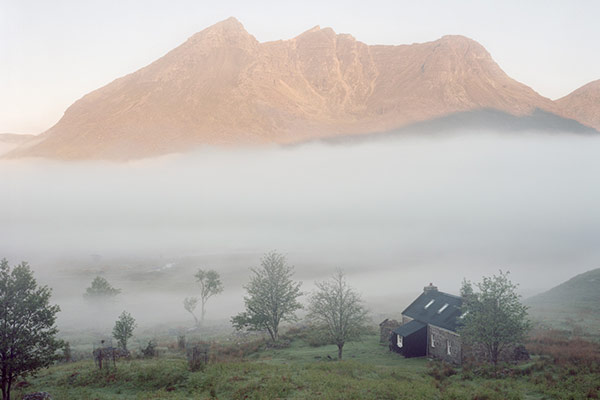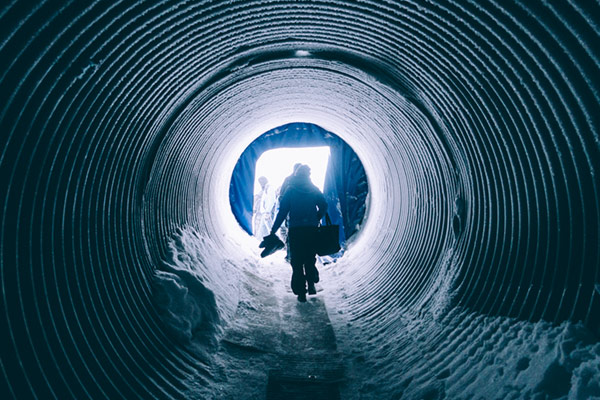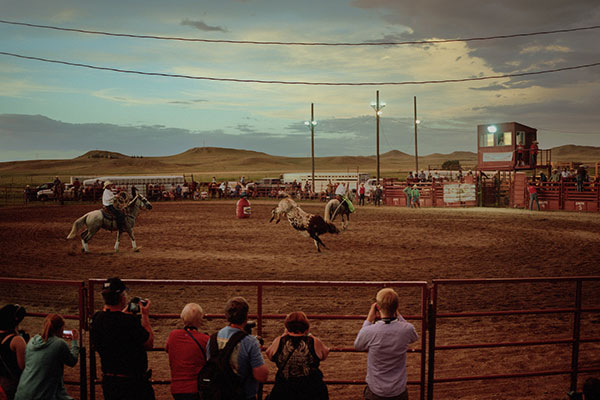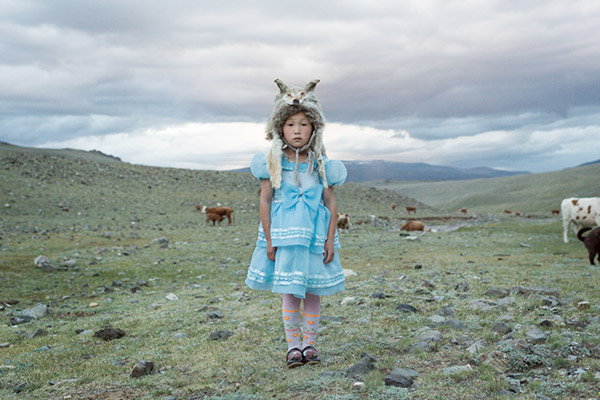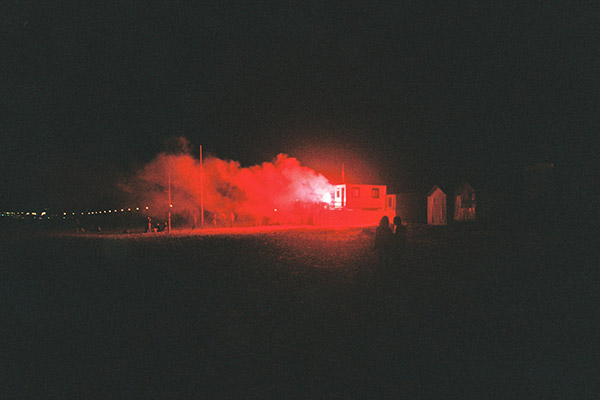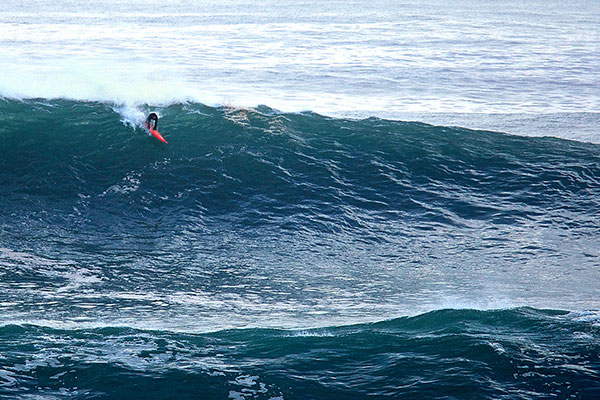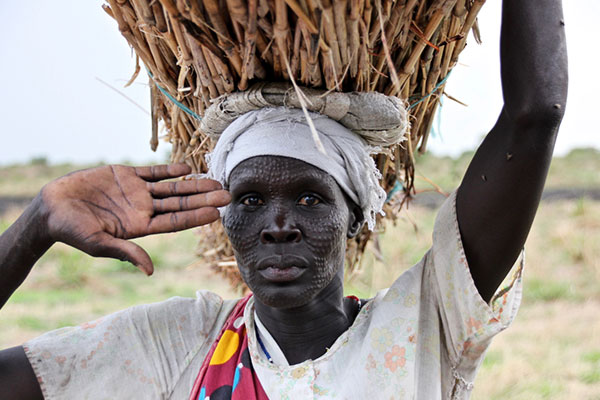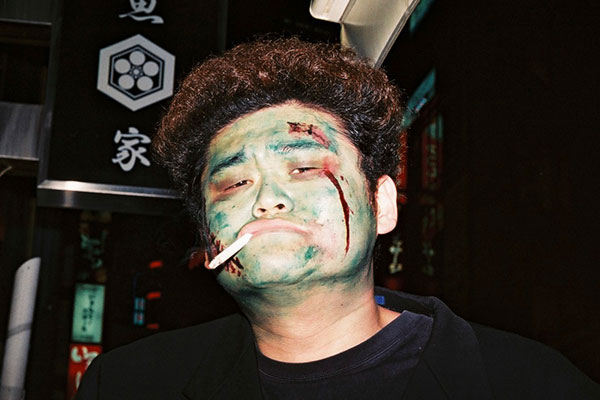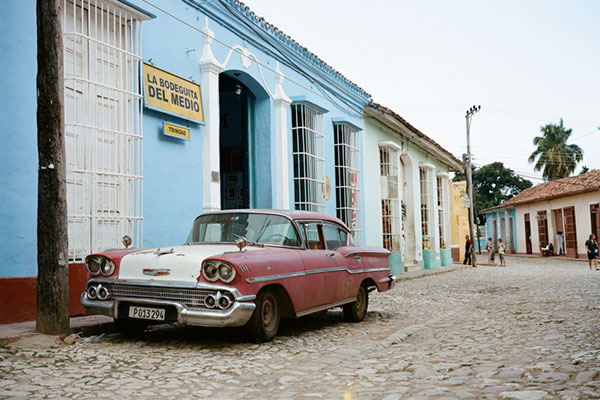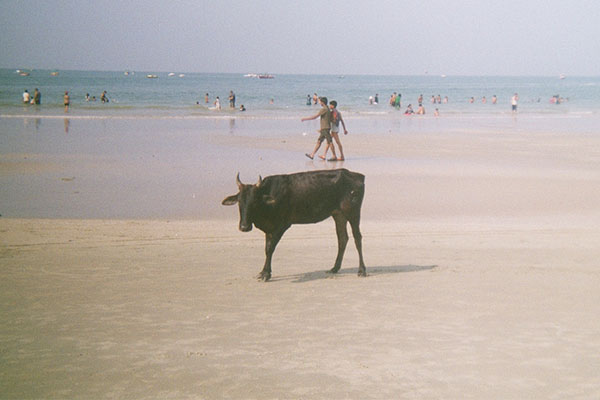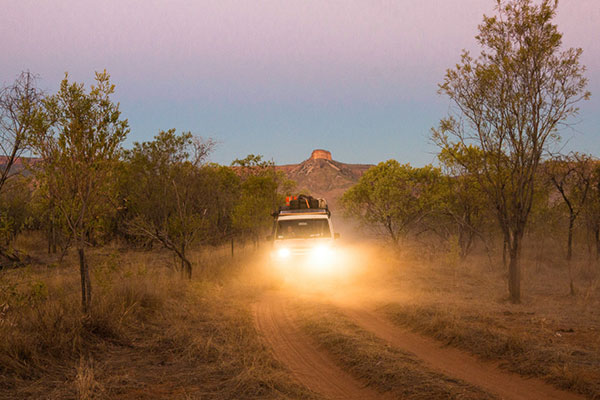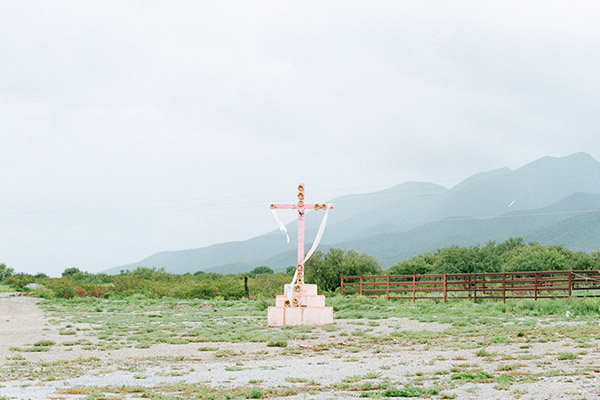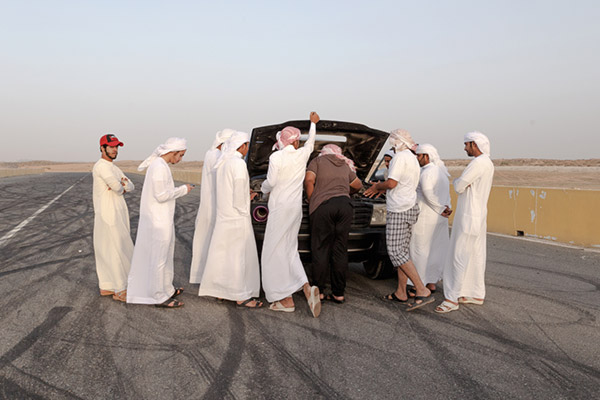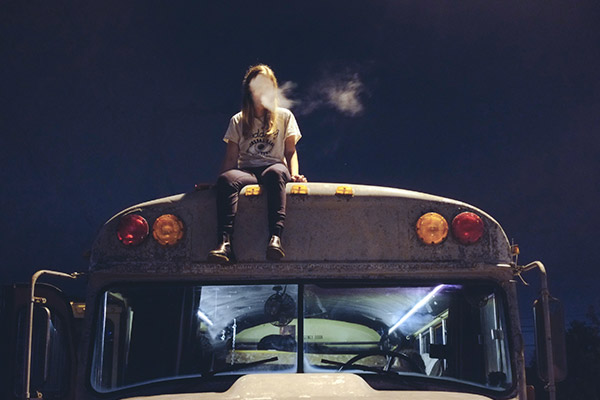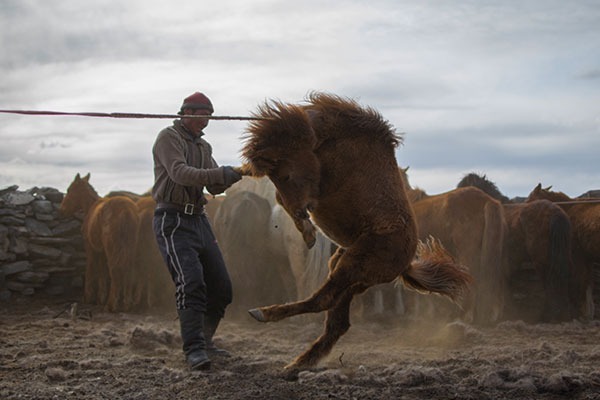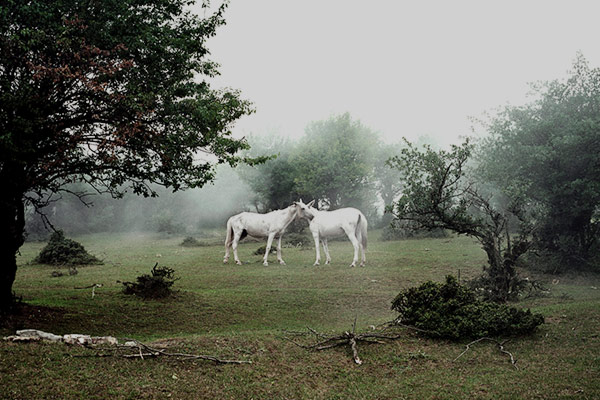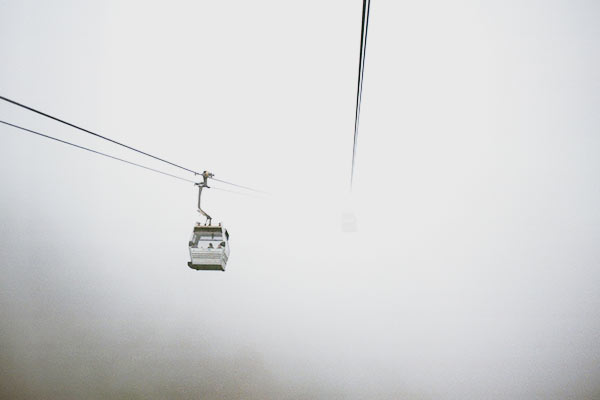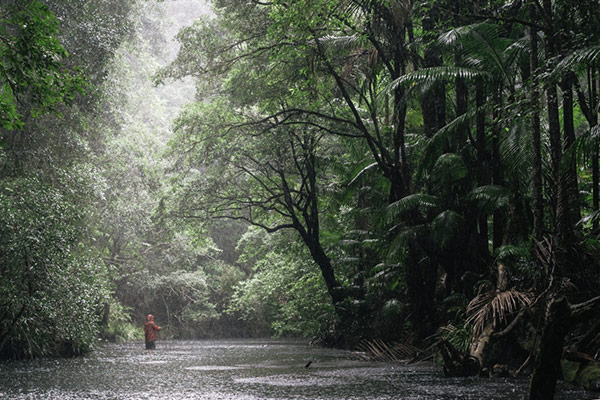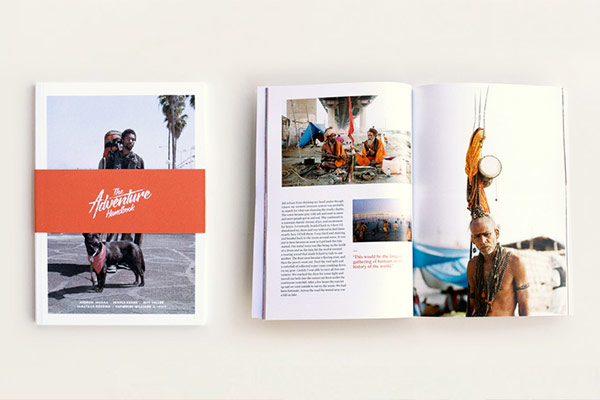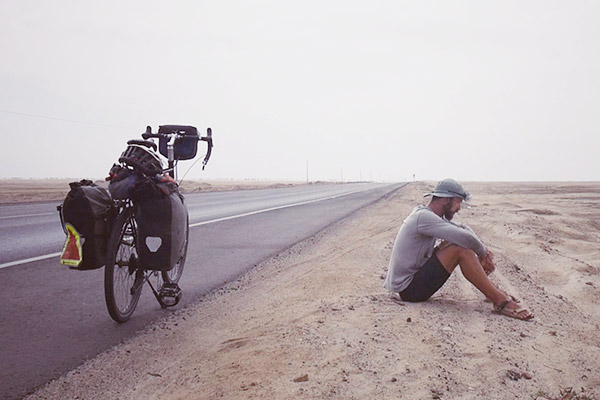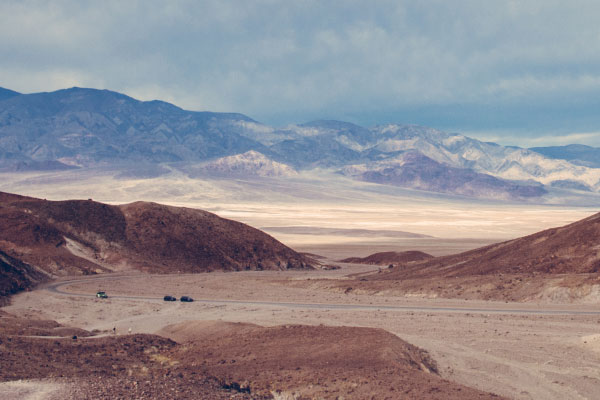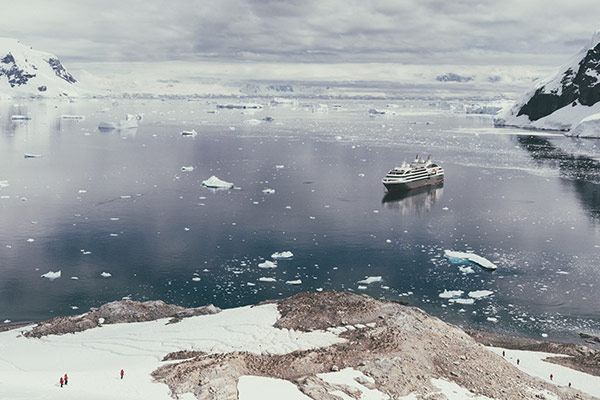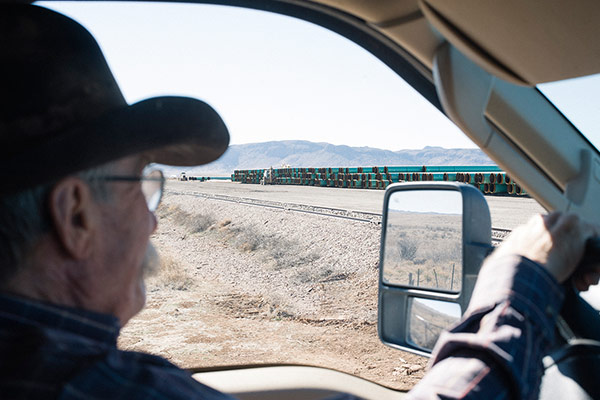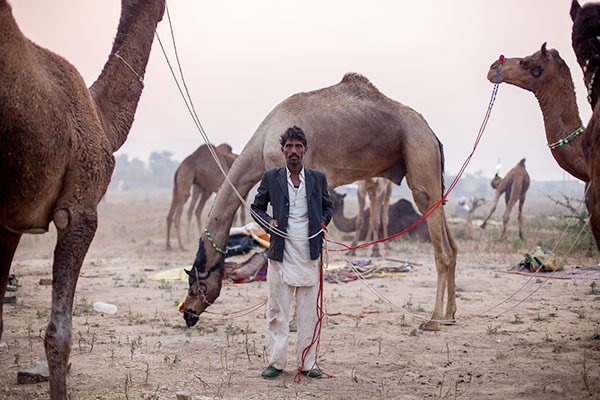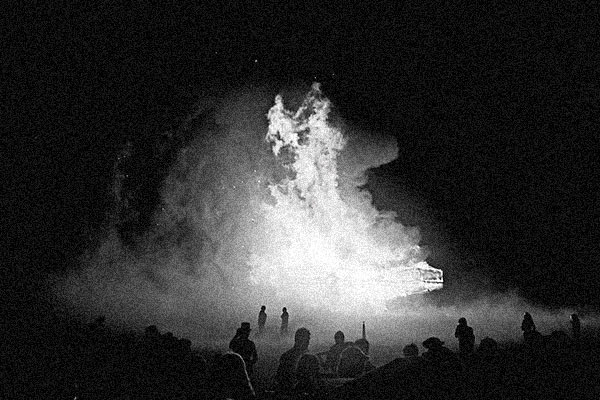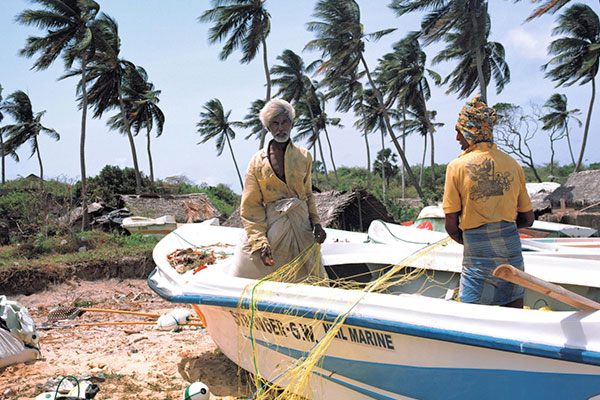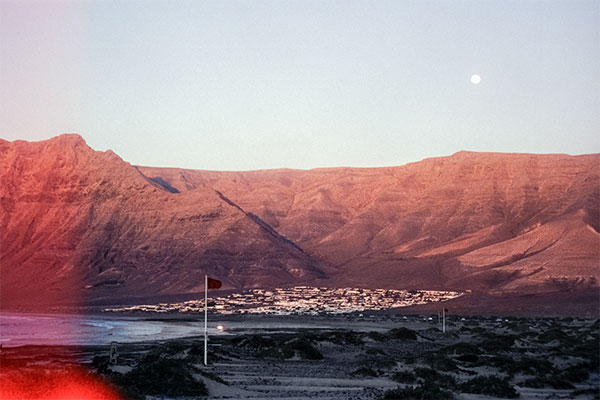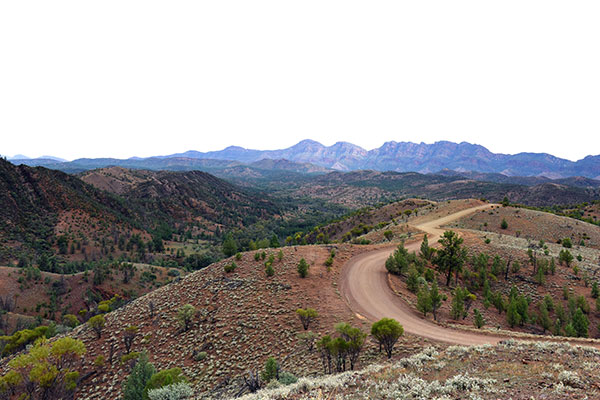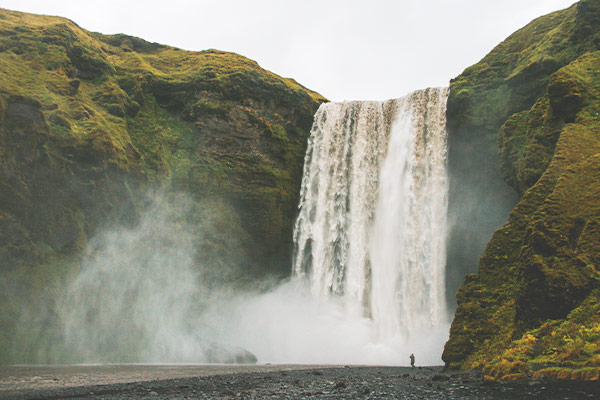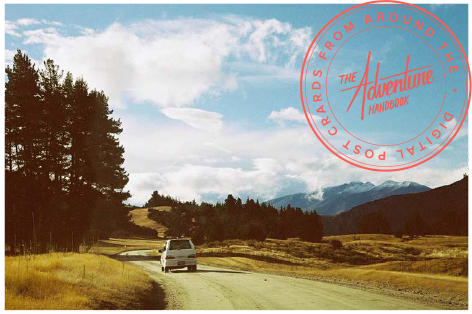This story is for Halzan. He was violently mugged and passed away less than two weeks after I visited him. He changed how I see the world and gave me the courage to begin thinking about what I’m afraid of.
“The people of your culture cling with fanatical tenacity to the specialness of man. They want desperately to perceive a vast gulf between man and the rest of creation…in the end this mythology is not deeply satisfying. The [people of your culture] are profoundly lonely people. The world for them is enemy territory, and they live in it like an army of occupation, alienated and isolated by their extraordinary specialness”
– Ishmael from Daniel Quinn’s Ishmael, p.146
These were the words I read as I made my way towards the Dukha reindeer herders of Mongolia in early November. After two days of driving from Ulaanbaatar, Mongolia’s capital, our small party made its way another two days on horseback. We wound our way through wilting pine forests and across the frozen ground of the northern Mongolian tundra long after the tourist season had ended, with winter on its way. I ended up speaking with a Dukha shaman and coming back to his teepee later that evening to watch as the ghost of one of his ancestors possessed his body. It was during that same trip I learned from Quinn’s telepathic, gorilla teacher Ishmael.
Above: Boldbatyr is a Kazakh eagle hunter living in Bayan-Ulgii—one of Mongolia’s westernmost provinces. During a recording trip there I had the opportunity to record him singing about his eagle as she stood by calmly and listened. We were able to get the shot right at sunset which made for some beautiful lighting. We tried a second take after this performance, but it was already too dark.
Arriving outside the shaman’s teepee, one particular reindeer stood out to me. I watched and photographed as it plodded at a mound of snow looking for food. Around its neck hung a collection of small multi-colored flags. Curious, I asked my new acquaintance what the flags signified. He explained that different spirits lord over the various places he and the Dukha inhabit. One of those spirits had spoken to him and told him that it owned that particular reindeer. Different spirits had told him they owned different reindeer. He pointed to several other animals with similar flags hanging around their necks. He had simply become the caretaker for the reindeer that the spirits had singled out. He would never ride them or use them for their milk, pelts, or meat.
“What a beautiful gesture,” I thought.
A Dukha shaman’s reindeer
The reindeer would be brought back to the camp around dusk. With many wolves in the area, it isn’t safe to let them graze at night.
Jargal was the oldest member and head of the small Dukha community I stayed with.
I had no doubt he believed that he had communed with spirits and I don’t believe he had fabricated his premonitions. It made me wish for myself the spirits he was describing truly existed.
My travel companion, Joe, our translator, Oyuka, and I all made our way into the shaman’s teepee. Joe had come to interview the shaman about the tourist economy in Mongolia. . I was still stuck on the reindeer with flags around its neck and the spirit who had spoke with the shaman.
Our interview began. The shaman introduced himself as Halzan and quickly made the Dukha’s connection to the natural world fully apparent. The Dukha, the reindeer, the snowy cold, and “wild nature”, as he put it, all keep each other in balance. If one piece were removed, the entire system would collapse. It was a simple fact stated and restated by many of the Dukha I spoke with. The reindeer themselves, in a sense, define the Dukha ethnicity and, at the same time, sustain the Dukha as they are used as a food source and for their warm pelts.
The Dukha, the reindeer, the snowy cold, and “wild nature”, as he put it, all keep each other in balance. If one piece were removed, the entire system would collapse.
In Halzan’s own words, “Without the reindeer there is no Dukha, no us.”While that was easy enough to understand, Halzan went on to say the bond between the Dukha and “wild nature” was so strong that if they left, disaster would follow for that wild space. Without getting a real answer for why or how the Dukha had come to hold that certain power over this wild space, I scribbled a simple diagram in my notebook, attempting to describe the nature of the connection.
My understanding was cemented as he explained, “reindeer get fat in the winter.”
This simple fact bears enormous weight for the Dukha. As most every other culture does everything in its power to escape the cold of winter, the Dukha must embrace it as temperatures in Tsagaannuur, White Lake, plummet towards -40°C in an average year. Halzan went as far as saying that if Tsagaannuur became too warm, they would move north into Russia. The cold sustains their animals and, in turn, indirectly nourishes the Dukha as they embrace nature in its wildest form. Coming from a culture obsessed with pushing back, controlling, and designating the wild nature Halzan talked about, and having personally found immense value in that type of space, I was drawn in.
Above: During a 12 day trip to Bayankhongor in 2013, I met Tseveng. He is well known in his community for singing traditional Mongolian folk songs. He used to sing in competitions and perform more regularly when he was younger, but doesn’t have as many chances to perform as much as he used to.
Where did the spirits play into all of this? Where do they fit into my neat diagram? Do they? I could feel Halzan’s growing apathy towards us even before our translator relayed his annoyance with how long the interview had lasted. The days were getting shorter and he had a lot of work to do before winter was in full swing. My questions were left unanswered.
I will never fully understand or feel the connection the Dukha have with the land they inhabit. That being said, my gap in understanding should not be filled with romantic notions of primitivism or noble savagery. While the Dukha locate themselves in a world filled with and governed by spirits, they are still acutely aware of humanity’s role in global warming. If the Dukha are forced to leave Tsagaannuur, it would be because of dramatic climate change. Reindeer get fat in the winter. Whether spirits exist or not, the essential relationship the Dukha have with the natural world requires pristine wild space.
Our meal the night before starting our first two days of riding.
Children often learn through simply watching their parents as opposed to being told.
If the Dukha leave Tsagaannuur, it may or may not deteriorate because of the lack of their presence, because some sort of tangible spiritual bond, but it will be too late to save. Reindeer get fat in the winter. There was less snow this year than last year. But you probably could have guessed that.
Spirits don’t exist. I know that. There’s no way that this shaman was actually going to communicate with the ghost of his ancestor despite his sincere belief that he would. The anthropologist in me was keen to observe the ritual that was about to take place.
Yet, as we entered the shaman’s teepee, I could feel fear growing inside me. But why was I afraid if I don’t believe in spirits? I wasn’t raised to be religious and have felt uncomfortable more than once as I entered various places of worship. I think it comes from not feeling a connection to the ritual value those places hold. Maybe that’s what it was. A knot started to tighten in my gut.
Watching Halzan, I tried to interpret his actions as he very intentionally rearranged various objects in the teepee. I thought the ceremony had already started, but it wouldn’t begin for another two hours. He knew I was scared. “I’m thinking about you”, he said, clearly sensing my fear by the way I was looking at him. “What about me are you thinking” I asked through my translator, hoping that this bit of information might calm my nerves. “You are sitting farthest from me, you will get to ask questions last.” Not what I had wanted.
After a couple hours of waiting, Halzan signaled that the stars were out. He was ready to begin what would ultimately turn into a three-hour ritual. While the ceremony had been organized for Joe, he was going to give the shaman an agreed upon tribute once he became fully possessed, several people from the small Dukha community we were staying with showed up. As I would find out, the spirits certainly did not care that Joe and Halzan had agreed to organize a ritual. Once possessed, the shaman was no longer with us. It was just his body.
Our father and son guiding team, Puujee-akh and Sambo, as we came over a mountain into the tundra.
Horses are incredibly important and valued to herders throughout Mongolia. When a horse dies, its skull will often be placed in a tree, off the ground, to show respect.
Loud drumming and smoke filled the crowded teepee, lit by two small candles. The stove warming the teepee went out and wasn’t relit. The Dukha seemed unfazed. I shivered in anticipation. The spirits called for vodka, cigarettes, and Mongolian sage as they came closer to possessing Halzan. Guttural sounds were forced from deep within Halzan’s chest as his drumming intensified and his movement became much more erratic.
Maybe it was the shaman, maybe it was a ghost stepping into his body momentarily, maybe some of both since he hadn’t been fully possessed—Halzan threw his mallet, hitting me in the face.
Maybe it was the shaman, maybe it was a ghost stepping into his body momentarily, maybe some of both since he hadn’t been fully possessed—Halzan threw his mallet, hitting me in the face.
Having been able to hold back the full expression of my fear up until that point, my whole body began shaking uncontrollably. I was instructed to kneel down and place the mallet back on Halzan’s middle finger.“This wasn’t supposed to be about me. This wasn’t supposed to be about me!” echoed through my head.
The ideas that I had brought with me were knocked from my mind. This wasn’t discomfort in an unfamiliar space. This was a fear that this man already knew, or would discover, something that was buried deep inside of me that I didn’t know about myself. Something that I might not want to know, and something outside of humanity would tell him. Maybe Ishmael was right. Maybe I’m uncomfortable, even afraid, to have my own human superiority confronted and questioned—despite thinking that I reject those notions. In this space, deep in the Mongolian tundra with a group of reindeer herders, there isn’t even an opportunity to reject the idea of human superiority. There was never any room for it to exist in the first place. “Without the reindeer there is no Dukha, no us…reindeer get fat in the winter”.
Above: Auyl: A small community of Kazakh herders who live together
Zhorga: A type of horse that is fast but always trots instead of galloping—especially good for covering large distances
The dogs that serve as guards warning herders of intruders or wolves started barking. Disbelief still lingering, I felt myself hoping for the ghost to arrive at that moment, despite the knowledge that I’d chalk it up to “coincidence” no matter what happened. There was one last, powerful hit to the reindeer-hide drum. With all its force captured in an instant, the ghost entered Hazlan’s body. He fell back, caught by several participants.
Halzan’s body had become a container for one of his ancestors. Our new guest was very old and Halzan’s shamanic assistants took off the heavy robes used for the ritual to keep him from collapsing.Barely able to hold his own weight, he was helped to the floor. Joe gave him his tribute, and it was time for each of us to speak with Halzan’s ancestor.
Disbelief still lingering, I felt myself hoping for the ghost to arrive at that moment, despite the knowledge that I’d chalk it up to “coincidence” no matter what happened.
Having known this moment would eventually come, I continued to tremble, unable to be sure if it was out of fear, cold, or exhaustion as I approached to speak with Halzan’s ancestor. “Stay strong, be brave…don’t fall in love with the old woman…the choice to move to the city is yours…stay strong…be brave,” he told me.
“That’s it! That was so vague! He could have said that to anyone. I was right all along, of course he can’t actually communicate with ghosts.”
“Do you have any questions?” I told him I didn’t, still afraid that I might hear something I didn’t want to know.
Joe went next. He had wanted to ask about his recently deceased great grandmother.
“Your great grandmother is fine. Did she have a red jacket?”
“Yes,” Joe replied, visibly shaken.
“And a tattoo?”
“Yes.”
“She is fine.”
It was past one in the morning and, as it had been when we came to the shaman earlier that evening, too dark to ride horses. Walking the thirty minutes through dark snow and piercing cold back to the camp I asked, “Joe, what was that about?”
His great grandmother had been buried in her favorite red jacket and the mortician had found a tiny tattoo on her hip that nobody in Joe’s family had known about prior to her death.
Riding the bus through Ulaanbaatar after my trip I allowed myself to momentarily to believe that spirits exist. Let’s say, for a second, that there really are land spirits. What happens to them when the forest and their land become appropriated for human use? Where do they go? Do they die? Assuming they do exist, there certainly aren’t any spirits here. The wild nature they would have governed is totally covered in cement and swirling with smog and diesel fumes.
Of course, I don’t believe in spirits. I was never given the chance. I grew up in a city, which only gives the opportunity to believe in the ingenuity, but also the superiority of humankind. Taking an even bigger step back, I grew up in a culture that believes in the myth that this world was created for and to be ruled over by humans. No American rancher would ever be told by a spirit that one of his horses was to be taken care of, but never ridden. That option does not exist in his mind. His logical understanding of private property and hard work, and his cultural understanding of wilderness as a barrier to human progress, would never allow him to accept that the fate of his own herd falls into anything except his own hands. Rather than focusing on whether or not spirits exist, maybe I need to think about how my own understanding of the world limits my thinking.
After being told to wake up with a literal hit to the face, my initial reaction to the spirit’s advice was to reject it. After being told to “stay strong, be brave” having been overcome by fear the entire night, my reaction was still to reject the spirit’s advice.
“The specialness of man”, as the character Ishmael had referred to it, is deeply engrained in my worldview. Despite being awakened to the existence of that dangerous line of thinking, I cling to these ideas my culture has instilled in me.
My temporary home as I stayed with the Dukha
A woman offering rice during the first sunrise of the Lunar New Year.
While the Dukha have imagined a world filled with spirits, we have imagined ourselves separate and disconnected fromthe world. Sure, God might exist in a culture that believes in human superiority, but individual understandings of God ultimately separate people from the rest of the world and certainly from the “wild nature” Halzan spoke of. God might influence elephants, trees, or fungus equally as humans, but very few people would argue that those creatures know of the existence of a God. Various forms of God certainly don’t tell you what to do with your own metaphorical reindeer. For the Dukha, or at least the shaman I spoke with, spirits create literal connections to the wild nature they inhabit and need to sustain their reindeer and themselves. My cultural worldview was created to separate me from the natural world—civilization embattled with wilderness and the barbarians and savages who live there—these aren’t new ideas though.
Brought back to the bus in Ulaanbaatar, I reconsidered the advice the shaman had given me. What was I so afraid of? I had missed my stop.
Words and images by Dimitri Staszewski @dimitri.photo
Receive a postcard from us sign up


